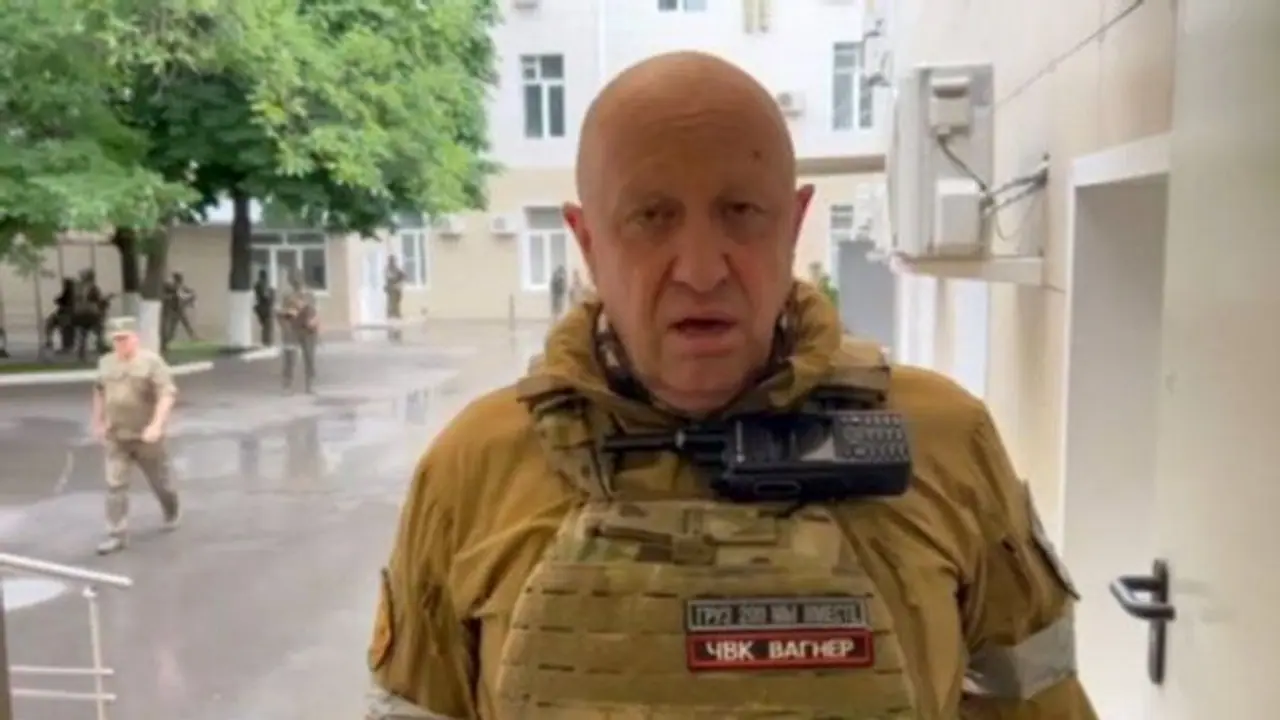Kremlin spokesman Dmitry Peskov said Wagner Private Military Company founder Yevgeny Prigozhin will move to neighbouring Belarus and fighters who did not participate in the rebellion will not be charged and would be able to sign contracts with the Russian Defence Ministry.
Russian President Vladimir Putin has managed to stave off the crisis that saw a mercenary boss ordering thousands of soldiers to march towards Moscow on Saturday, threatening to unleash bloodshed along the way and eventually topple the government.

In a press briefing, Dmitry Peskov, the spokesperson for the Kremlin, announced that the crisis instigated by Yevgeny Prigozhin, the founder of the Wagner Private Military Company, had been successfully resolved. As part of an agreement to ease tensions caused by the rebellion, Prigozhin will relocate to neighbouring Belarus, leading to the closure of the criminal case against him.
Wagner chief halts march on Moscow to avoid 'bloodshed'; listen to Yevgeny Prigozhin's message
Peskov clarified that Prigozhin would not face prosecution but would instead leave Russia for Belarus. Furthermore, Wagner fighters who were not involved in the rebellion would not face charges and would have the opportunity to sign contracts with the Russian Defense Ministry.
Witnesses reported observing Prigozhin and his soldiers leaving the headquarters of the Southern Command of the Russian army in the city of Rostov.
Subsequently, the situation in downtown Rostov-on-Don in southern Russia, where individuals wearing camouflage and military equipment were present during the PMC Wagner crisis, gradually stabilized by midnight.
Once the Wagner PMC column left the city, traffic resumed along Budennovsky Prospekt near the headquarters of the Southern Military District. Consequently, all road traffic restrictions previously imposed in regions such as Rostov, Lipetsk, and Tula due to the Wagner crisis have now been lifted.
To provide context, on the evening of June 23, Prigozhin's Telegram channel shared several audio recordings in which he alleged that his formations had been targeted by strikes and accused the country's military leadership. In response, the Federal Security Service (FSB) of Russia initiated a criminal case regarding the call for an armed mutiny. The FSB urged Wagner fighters not to comply with Prigozhin's orders and to take measures for his detention.
The involvement of Wagner troops in the Ukraine war has been instrumental, particularly in the capture of the eastern city of Bakhmut, which has been the site of the bloodiest and most protracted battles. However, Yevgeny Prigozhin, the founder of Wagner, has increasingly voiced criticism against the military leadership, accusing them of incompetence and neglecting to provide sufficient ammunition for his troops.
Prigozhin, in his announcement of the rebellion, levelled accusations against Russian forces, claiming that they had launched attacks on the Wagner camps in Ukraine using rockets, helicopter gunships, and artillery. He alleged that General Valery Gerasimov, the chief of the General Staff, authorized these assaults following a meeting with Sergei Shoigu, during which they made the decision to dismantle the military contracting company.
Russia's Defence Ministry refuted the reports that Russian forces had conducted strikes against the rear camps of the Wagner private military company, deeming them false.
Explained: Why Wagner mercenaries went rogue and 'invaded' Vladimir Putin's Russia
During his televised address to the nation on Saturday, Russian President Vladimir Putin denounced the actions of the Wagner private military company as an armed mutiny and an act of betrayal. He assured the public that strict measures would be taken against the insurgents.
At 62 years old, Prigozhin, a former convict, has longstanding connections to Vladimir Putin and has secured highly lucrative catering contracts from the Kremlin, earning him the moniker "Putin's chef."
His prominence in the United States came about when he and a group of twelve other Russian individuals were charged with orchestrating a covert social media campaign aimed at sowing discord before Donald Trump's successful presidential election in 2016. Wagner, in addition to Ukraine, has deployed military contractors to regions including Libya, Syria, several countries in Africa, and eventually Ukraine.
